Post
A catch
Save a catch to start your fishing logbook. You will be able to to share it with the community if yo want!
A fishing trip
Post an ad to go fishing with other fishermen
Save a catch to start your fishing logbook. You will be able to to share it with the community if yo want!
Post an ad to go fishing with other fishermen
Share a thought, a question with the community
My favorite cities
×Join our 1 fisherman in Diana in Upshur. The fishing forecast is currently 3.2. The most caught fishes here are the chum salmon, the moapa dace, the muskellunge and the razorback sucker. Come try the most famous fishing techniques like the surf fishing, bass trolling, trolling for bonito or boat fishing for eel.
Our fishing forecast of Diana indicates the best time to go fishing in this city.
The Chum Salmon
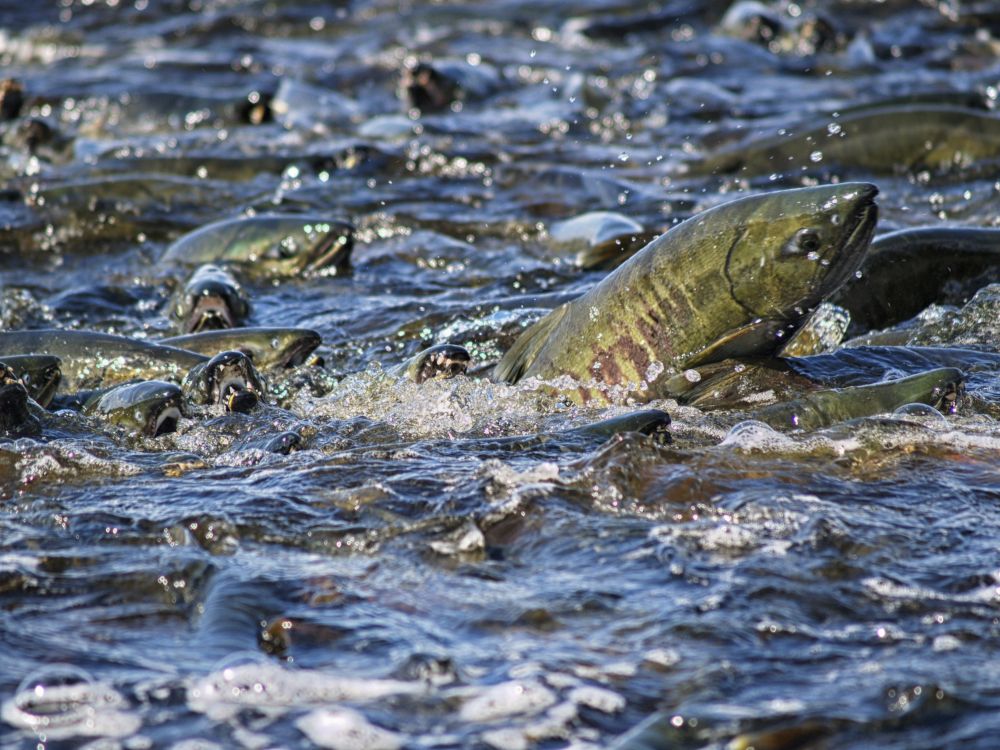
The Chum Salmon belongs to the Salmonidae family. It can reach 100 cm for a maximum weight of 15 kg. It has a lifespan of 3 to 5 years. The breeding period depends on the location. It can be fished all year round. The body of chum salmon is deeper than most salmonidae species. Like other species in the Pacific, the anal fin has 12 to 20 rays, compared to a maximum of 12 in European species. The chum salmon has a silvery blue-green coloring with some indistinct spots in a darker shade and a rather paler belly. When they move in fresh water, their color changes to dark olive green and the belly color intensifies. When adults are about to spawn, they have purple streaks near the caudal peduncle, darker towards the tail. Breeding males generally develop an extended snout or kype, their lower fins turn white and their teeth are larger.
The Chum Salmon is a famous fish you can catch in Diana.The Moapa Dace
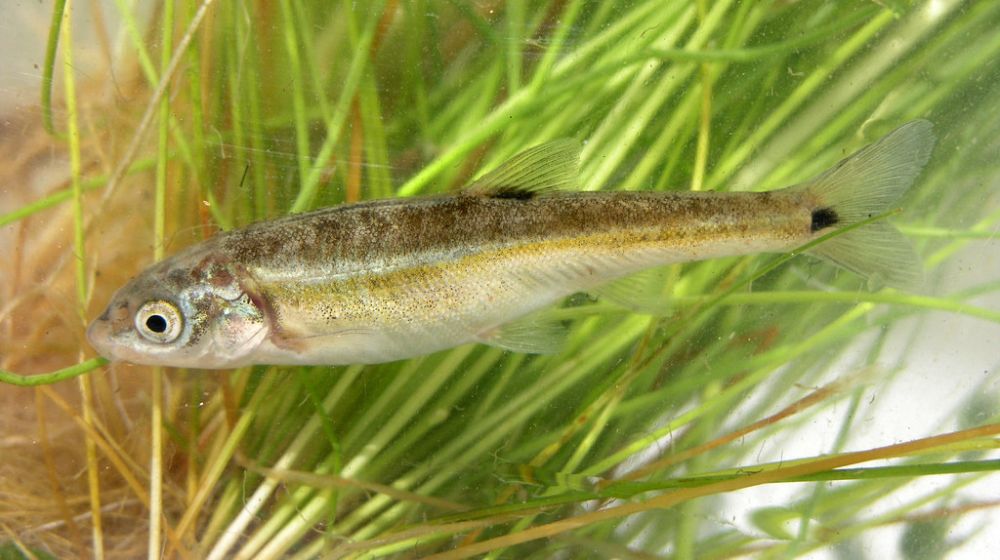
The Moapa Dace belongs to the Cyprinidae family. It has an average size of 10 to 13 cm. It has a lifespan of 4 years old. It may spawn throughout the year with a maximum activity in spring. It is an endangered species so the fishing is prohibited. It is a small fish with a short head, a terminal mouth and thick, semiconducting lips. The dorsal fin begins above or slightly behind the insertion of the pelvic fins and the caudal fin is forked. The dorsal color is dark, the sides are brownish with slightly golden areas and the ventral color is light. There is a dark spot on the tail and a dark line on each side of the body. The scales are small and deeply inlaid and the skin looks like leather. Some dace species have a small maxillary barbell, but not the species.
The Moapa Dace is a famous fish you can catch in Diana.The Muskellunge
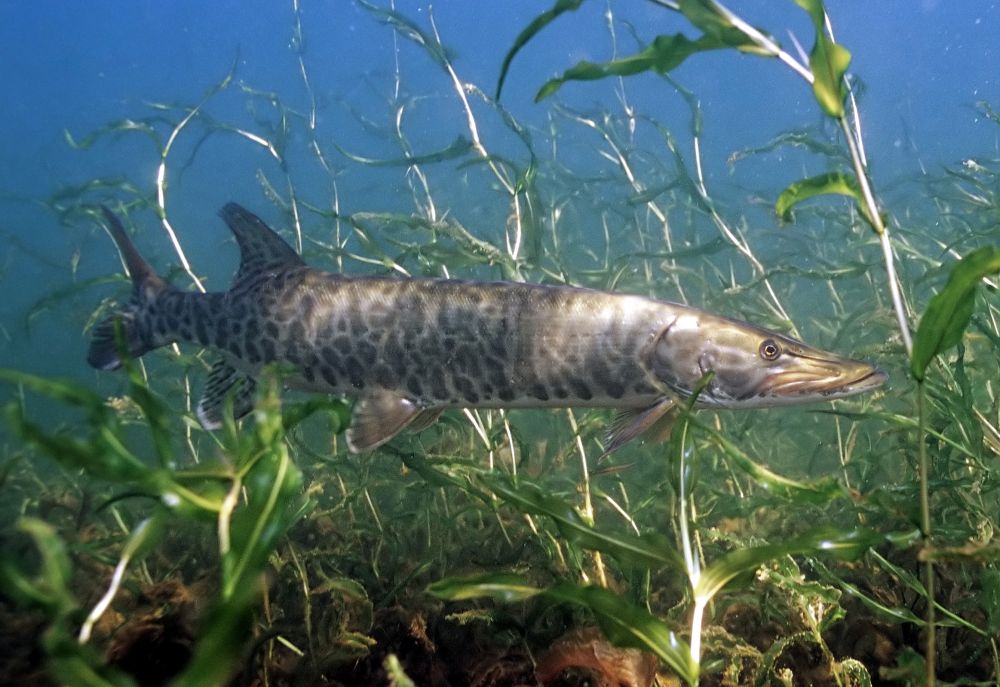
The Muskellunge belongs to Esocidae family. It can reach 150 cm of length for 30 kg. It has a lifespan of 30 years. They spawn in springs. It can be fished all year round. The sides vary from greenish to brownish to silvery, usually with dark marks, but marks may be absent. The white or cream belly often has brownish or greyish spots. The dorsal and anal fins, located far away on the body, range from greenish to brownish to blood-red and generally have dark marks. The duckbill jaws have long, pointed teeth: the roof of the mouth has shorter, curved tooth pads. The cheek cover and gills have scales on the upper half only. The underside of the jaw has sensory pores, the numbers varying from 12 to 20, but the number is generally 15 to 18.
The Muskellunge is a famous fish you can catch in Diana.The Razorback Sucker
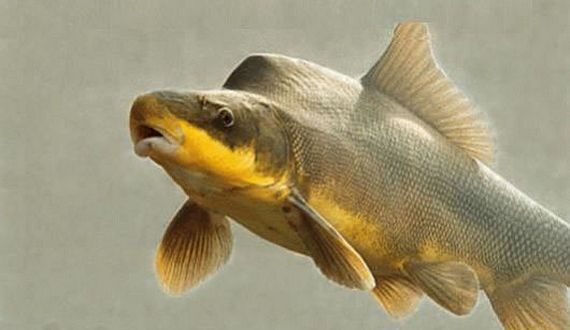
The Razorback Sucker belongs to the Catostomidae family. It is a relatively large catostomidae, reaching more than 91 cm in length and weighing 5 to 6 kg. It has a lifespan of 50 years. It nests from January to June. It cannot be fished because of its status as an endangered species. Razorback suckers are similar to other Catostomidae, with the exception of two main characteristics. The most characteristic features of the razorback sucker are a pronounced edge made of neural and internal bone that extends from the head to the dorsal fins, as well as elongated filaments on the gills. Females have a lower keel. Well-developed filaments are made for zooplankton feeding. It has a long snout, a long rounded head that is ventrally compressed and a ventral mouth with a split lower lip. There is 12 to 15 rays on the dorsal fin and the anal fin has 7 rays. Pelvic and anal fins are longer in males. It has an almost straight lateral line with 68 to 87 scales.
The Razorback Sucker is a famous fish you can catch in Diana.The Steelhead Trout
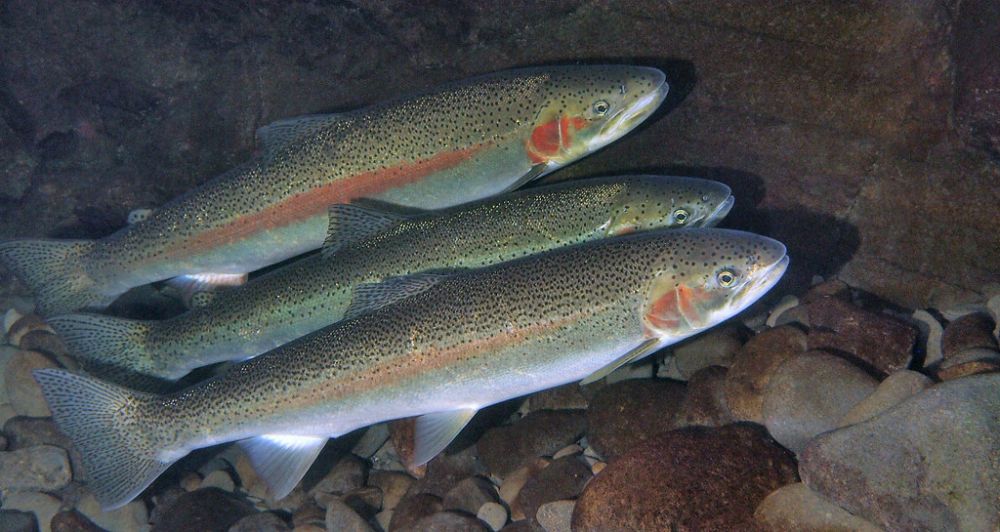
The Steelhead trout belongs to the Salmonidae family. Steelhead trout is a name given to the anadromous form of red-band trout (O. m. Gairdneri) or coastal rainbow trout (Oncorhynchus. M. irideus). Steelhead trout can weigh up to 26 kg and reach a length of 114 cm. He can live 11 years. It breeds from January to April. It is fished from the end of October to the month of November. Steelheads trout generally have a more refined shape and a silver or copper color when they reach adulthood, which is why they are called them.
The Steelhead Trout is a famous fish you can catch in Diana.Our fishing forecast of Diana indicates the best time to go fishing in this city.
Our fishing forecast of Diana indicates the best time to go fishing in this city.
Our fishing forecast of Diana indicates the best time to go fishing in this city.
